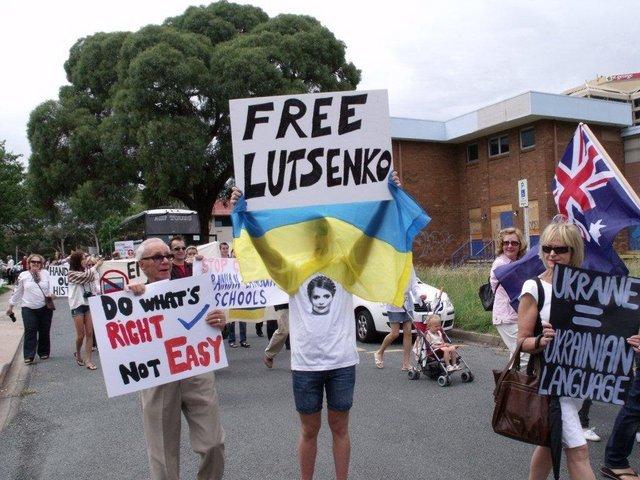The Lutsenko Pardon: Enough to appease the EU?
April 8, 2013 -
Andrew Wilson
-
Articles and Commentary

Freelucenko.jpg
On Sunday President Yanukovych pardoned Yuriy Lutsenko and Georgiy Filipchuk, two of Ukraine’s highest profile ‘selective prosecutions’, who were respectively Interior Minister and Environment Minister during the last Tymoshenko government (2007-10). This is just in time for the looming May deadline, when the EU has promised it will review Ukraine’s progress towards meeting the conditions Brussels has outlined for getting the Association and DCFTA agreements back on track in time for the Vilnius Eastern partnership summit in November.
Is the pardon enough to do so? In itself, clearly not. The EU has rightly been stepping back from conditions that are too ad hominem . The case against Lutsenko was weaker than most.
But will the pardon lead to progress elsewhere? It should not be forgotten that Lutsenko’s final court appearance last month was held in such shabby conditions – in a rather obvious reminder of where power lies. Even more importantly, Yanukovych also stressed that he would not issue a pardon until all legal options had been exhausted. The new charges laid against Yulia Tymoshenko in January therefore seem deliberately designed to stretch her process out until the next presidential election due in 2015. It will take a long time before all her process are ‘exhausted’, even if a European Court on Human Rights ruling comes before 2015.
The authorities in Kyiv are almost certainly calculating that the pardon of Lutsenko on its own will be enough to sow divisions within the EU. As long as ‘progress’ can be demonstrated, Brussels will allow the goalposts to shift. Particularly because there is political crisis in Moldova, and Georgia, rightly or wrongly, is accused of heading down the same road as Ukraine towards ‘selective prosecution’; and the EU will need a success story for the November summit.
But a few voices urging compromise will probably not be enough. Precisely because the original case against Lutsenko was always so absurdly weak, the EU should stand firm. Initial statements by Catherine Ashton and Štefan Füle have rightly said they ‘look forward to Ukraine addressing without further delay the outstanding case[s] of selective justice’. If Ukraine is serious, it will show willing in other areas. A fig-leaf ‘success’ in November negotiated for tokenistic reasons and proclaimed for PR purposes is unlikely to stick.
Andrew Wilson is a Senior Policy Fellow with the European Council on Foreign Relations (ECFR).

































